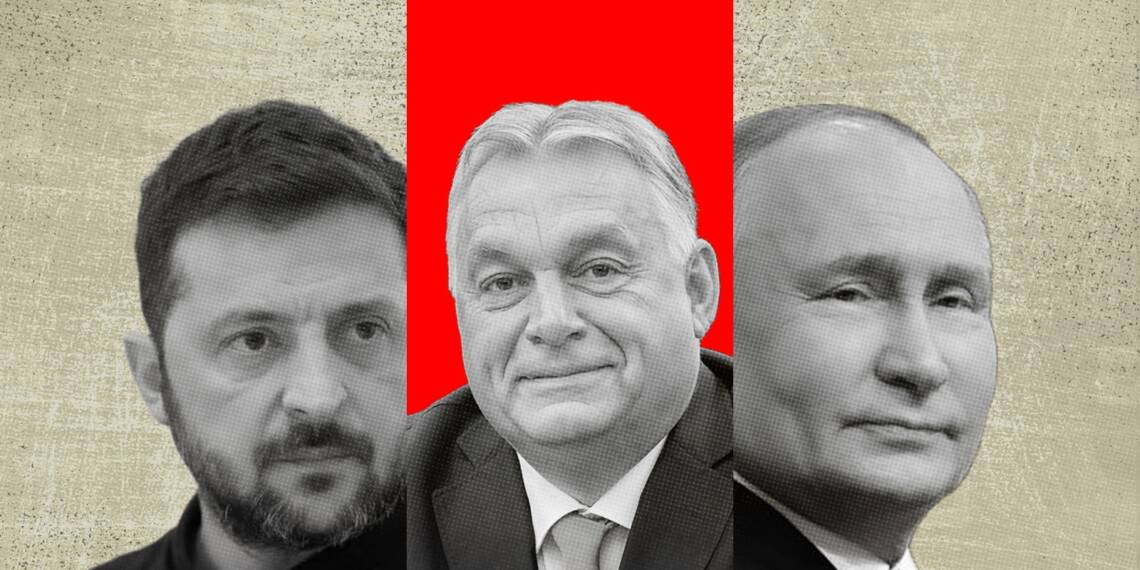Hungarian Prime Minister Viktor Orban has expressed a clear and controversial position regarding Ukraine’s future role in Europe. He asserts that Ukraine is destined to be a “buffer state” between Russia and the European Union rather than becoming a full EU member.
Orban argues that pushing Ukraine toward EU integration risks dragging the bloc into a wider conflict with Russia. His preference is strategic cooperation with Ukraine that is pragmatic and flexible, but not “irreversible integration,” warning that EU membership “would bring the war to the heart of Europe.”
Orban emphasized the historical role of buffer states during the Cold War, noting Hungary’s own experience as a buffer on the border of the Soviet Union and the Western world. While he acknowledged the discomfort and undesirability of this status, he insisted that Ukraine cannot simply change this geopolitical reality.
Growing Global Instability: Conflicts Multiply and Arms Race Intensifies
Orban’s comments come at a time of mounting global conflict and military buildup. In 2024, there were 184 recorded conflicts worldwide, reflecting escalating militarization. Global military spending rose by 9%, the highest increase seen since the Cold War era, driven primarily by power rivalries among major nations.
This arms race and geopolitical competition increase the risk of miscalculations that could escalate localized conflicts into broader wars.
Orban highlights the rivalry among great powers as a major factor making a world war more likely, citing conflicts not just in Ukraine but also hotspots like Palestine and Myanmar that contribute to global instability.
The Escalating Danger: Why the Risk of World War Is Increasing
Orban’s warnings are part of a broader discourse on the rising potential for a world war. The combination of more frequent conflicts and rivalries, nuclear-armed states, and advanced military technologies creates a volatile environment.
Ukraine is at the center of this dangerous juncture given Russia’s invasion in 2022 and Ukraine’s bid for EU membership, which Orban fears will pull Europe directly into armed conflict with Russia.
Although the possibility of wider war is not definite, the trajectory of current events makes this scenario plausible, requiring urgent attention from global leaders.
Ukraine at the Crossroads: The Geopolitical Flashpoint
Ukraine’s aspiration to join the EU and NATO has long been a source of tension. Orban, along with other skeptical voices, believes that NATO will never accept Ukraine’s membership and sees Ukraine’s fate as remaining a buffer zone post-conflict.
He has linked the failure of diplomatic resolutions partly to Western underestimation of Russia’s position and advocated for Ukraine to receive security guarantees without full integration into Western institutions.
Hungary’s stance carries weight within the EU, as Orban has indicated his country may veto Ukraine’s EU accession if it believes doing so threatens Hungarian interests, particularly in agriculture and business.
A Divided Debate: Sovereignty, Security, and the Path Forward
Opponents of Orban’s view argue that his buffer state concept undermines Ukraine’s sovereignty and right to self-determination. They point to EU expansion as a historically stabilizing force that has helped democratize and secure neighboring countries.
Preventing Ukraine’s membership could be seen as yielding to Russian pressure and thwarting Ukraine’s legitimate security interests.
Proponents of Ukraine’s integration counter that EU membership could deter Russian aggression and strengthen regional stability, highlighting peaceful previous enlargements as examples.
Can EU Integration Deter Conflict or Increase Risk?
The debate hinges on whether including Ukraine in the EU and potentially NATO will escalate conflict or foster peace. Orban and like-minded critics warn of increased risk by entangling the EU directly in the war’s dynamics.
Others claim the opposite—that integration provides a framework for managing tensions and supporting Ukraine’s defense, potentially reducing long-term conflict threats.
Navigating the Future of European Security
Orban calls for “calm judgment, not theatrical threats,” urging pragmatic decisions that prioritize European security without triggering broader violence.
The global community faces a delicate balancing act to protect sovereignty and stability while avoiding escalation.
Ultimately, Ukraine’s future role—whether as a buffer state or an integrated EU member—will significantly influence European and global security trajectories.
The challenge is to find diplomatic and strategic paths that reduce war risks, support Ukraine’s legitimate aspirations, and manage great-power rivalries without igniting wider conflict.








